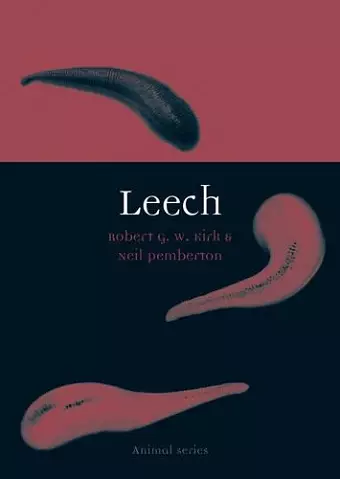Leech
The surprising history and cultural impact of a peculiar creature
Neil Pemberton author Robert G W Kirk author
Format:Paperback
Publisher:Reaktion Books
Published:1st Oct '12
Currently unavailable, our supplier has not provided us a restock date

This book explores the complex role of the leech in history, revealing its surprising significance in medicine and culture. Leech invites a deeper understanding of this enigmatic creature.
The Leech delves into the fascinating duality of one of nature's most enigmatic creatures. Often perceived as a mere bloodsucking parasite, the leech has played a complex role in human history, serving both as a symbol of dread and a tool for healing. This book explores the leech's surprising presence across various cultures and eras, from ancient humoral medicine to modern cosmetic procedures. Its ability to evoke both fear and hope highlights its unique position in the tapestry of human experience.
Throughout history, the leech has been a persistent figure, appearing in unexpected contexts. The authors, Robert G. W. Kirk and Neil Pemberton, examine how this creature has been utilized in medicine, illustrating its transition from a feared predator to a valuable therapeutic ally. The Leech showcases the creature's remarkable adaptability and its ability to inspire both fascination and repulsion, revealing the complexities of human perception towards nature.
In addition to its medical significance, the leech has also permeated popular culture, often embodying humanity's darkest fears. From classic literature like Bram Stoker's Dracula to contemporary video games, the leech's portrayal reflects societal anxieties about science and nature. The Leech invites readers to reconsider this misunderstood creature, presenting a comprehensive exploration of its historical and cultural significance, and ultimately, its enduring legacy as a companion to humanity.
Kirk and Pemberton are as fond of their subject as those bygone physicians, but they are particularly interested in its cultural symbolism. While there is plenty of solid science in this book, the most distinctive sections deal with the psychology of being bled, and our temerity for daring to equate the leech with all things nasty in ourselves. * TLS *
This book shies away from the facile association of leeches with parasites to view them, instead, as a symbiotic relationship with humankind, whereby both man and leech have benefited from the creatures extraordinary abilities. This short but rich volume thus explores the leech as both animal and symbol, from ancient medical remedy to modern horror film, from emblem of capitalism to biomedical tool . . . Well illustrated and engagingly written . . . the authors ably tie their historical and cultural research to the natural history of the leech, offering an interesting perspective on the history of science. * British Journal for the History of Science *
The authors aim to go beyond the human point of view is what makes the book a compelling read. It is not just a reiteration of the leechs role in medicine and nature, but a constant blurring of boundaries between them and us, biology and culture, science and society. However, the most captivating thing about the book is this: while the steady stream of fascinating information about leeches counteracts our deeply-ingrained fear and feelings of disgust, a readers newly found admiration is severely put to the test by accompanying images of leeches writhing on human skin, sucking blood . . . it is precisely this tension between images and text that constantly forces the reader to reflect on thewhy of their reaction, leaving the culturally conditioned, almost somatic responses to battle it out with the growing appreciation of this wonderful animal. This is the kind ofbook that is not passively consumed rather, one cannot but actively engage with the authors imperative Let us learn to love the leech! * Social History of Medicine *
ISBN: 9781780230337
Dimensions: unknown
Weight: unknown
208 pages